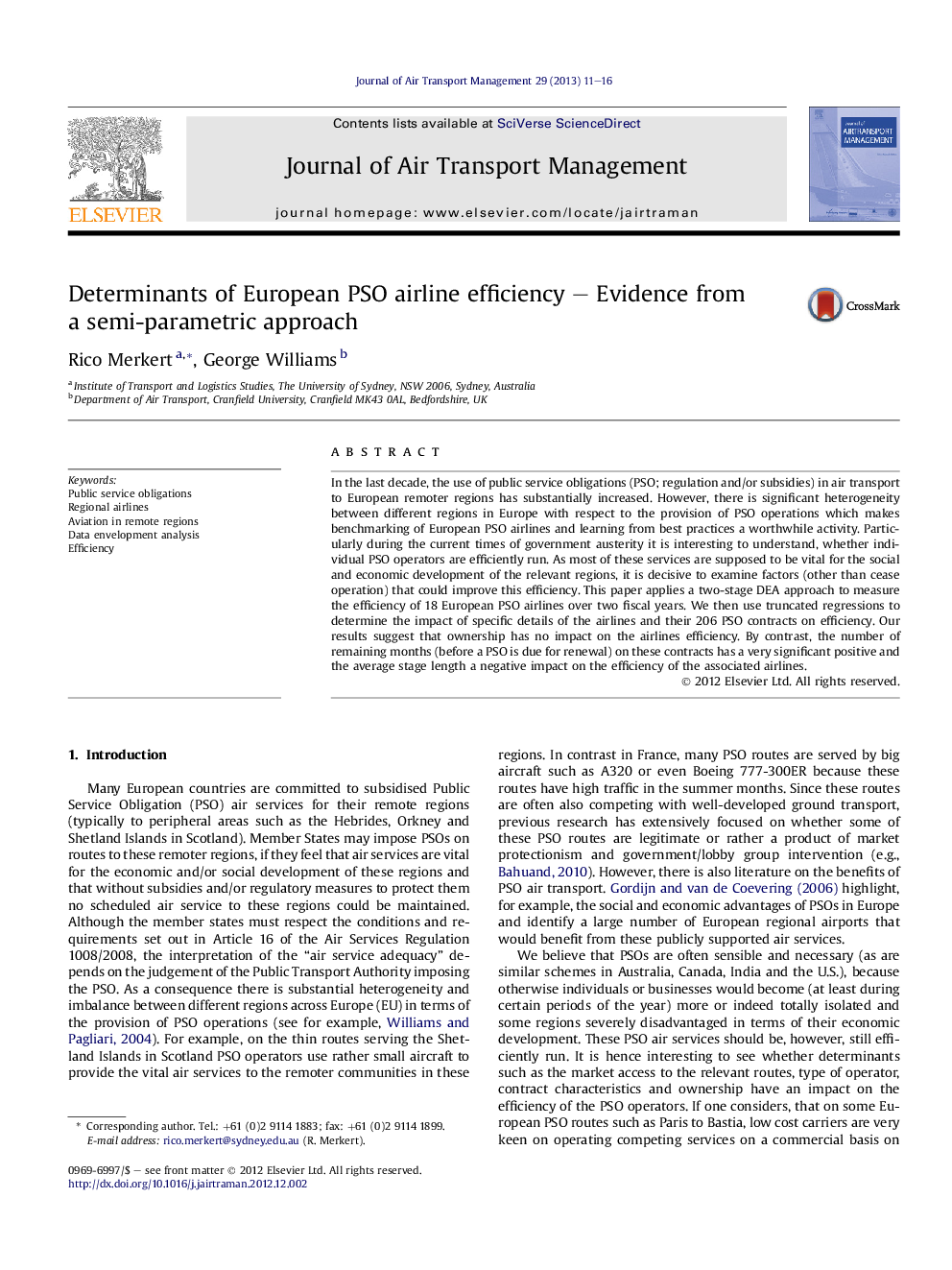| Article ID | Journal | Published Year | Pages | File Type |
|---|---|---|---|---|
| 1030947 | Journal of Air Transport Management | 2013 | 6 Pages |
In the last decade, the use of public service obligations (PSO; regulation and/or subsidies) in air transport to European remoter regions has substantially increased. However, there is significant heterogeneity between different regions in Europe with respect to the provision of PSO operations which makes benchmarking of European PSO airlines and learning from best practices a worthwhile activity. Particularly during the current times of government austerity it is interesting to understand, whether individual PSO operators are efficiently run. As most of these services are supposed to be vital for the social and economic development of the relevant regions, it is decisive to examine factors (other than cease operation) that could improve this efficiency. This paper applies a two-stage DEA approach to measure the efficiency of 18 European PSO airlines over two fiscal years. We then use truncated regressions to determine the impact of specific details of the airlines and their 206 PSO contracts on efficiency. Our results suggest that ownership has no impact on the airlines efficiency. By contrast, the number of remaining months (before a PSO is due for renewal) on these contracts has a very significant positive and the average stage length a negative impact on the efficiency of the associated airlines.
► This paper identifies determinants of efficiency of 18 PSO airlines in Europe. ► Contract duration, ownership and subsidies have no impact on PSO airline efficiency. ► Number of remaining months on PSO contracts has positive impact on airline efficiency. ► Lack of incentives for efficiency improvements as a result of limited competition.
